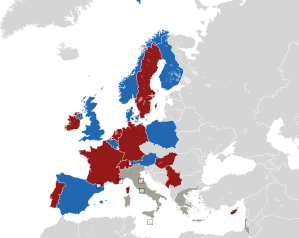| Eurovision Young Musicians 1992 | |
|---|---|
| Dates | |
| Semi-final 1 | 3 June 1992 |
| Semi-final 2 | 4 June 1992 |
| Final | 9 June 1992 |
| Host | |
| Venue | Cirque Royal, Brussels, Belgium |
| Presenter(s) | Marie-Françoise Renson |
| Musical director | Ronald Zollman |
| Directed by | Jacques Bourton |
| Executive supervisor | Frank Naef |
| Host broadcaster | Radio Télévision Belge Francophone (RTBF) |
| Participants | |
| Number of entries | 18 |
| Number of finalists | 8 |
| Debuting countries | |
| Returning countries | None |
| Non-returning countries | |
| |
| Vote | |
| Voting system | Jury chose their top 3 favourites by vote. |
| Winning musician | |
The Eurovision Young Musicians 1992 was the sixth edition of the Eurovision Young Musicians, held at Cirque Royal in Brussels, Belgium on 9 June 1992.[1] Organised by the European Broadcasting Union (EBU) and host broadcaster Radio Télévision Belge Francophone (RTBF), musicians from eight countries participated in the televised final. Eighteen countries took part in the competition. All participants performed a classical piece of their choice accompanied by the Belgian National Orchestra, conducted by Ronald Zollman.[1] Hungary and Poland made their début, while Greece and Italy decided not to participate.[1][2]
The non-qualified countries were Cyprus, France, Germany, Hungary, Ireland, Netherlands, Portugal, Sweden, Switzerland and Yugoslavia.[1] Bartłomiej Nizioł of Poland won the contest, with Spain and Belgium placing second and third respectively.[3] It marked the first time any country had won on their first participation in any Eurovision event since Switzerland's victory at the first Eurovision Song Contest in 1956, and has not been repeated since.[a] Technically, it would also mark the only time a country won a Eurovision event without their broadcaster being a full member of the EBU, as the Polish broadcaster Telewizja Polska (TVP) wouldn't formally join the EBU until the following year.
The contest also marked the last participation of Yugoslavia in the contest. By the time of the contest, United Nations Security Council Resolution 757 (adopted 30 May 1992) had already placed sanctions on FR Yugoslavia,[4] which included a ban on its participation in international contests and cultural events. Therefore, this was the last participation of Yugoslavia at any Eurovision event.
- ^ a b c d "Eurovision Young Musicians 1992: About the show". European Broadcasting Union. Archived from the original on 18 October 2014. Retrieved 5 October 2014.
- ^ Cite error: The named reference
DRwas invoked but never defined (see the help page). - ^ "Eurovision Young Musicians 1992: Participants". youngmusicians.tv. European Broadcasting Union. Archived from the original on 18 October 2014. Retrieved 5 October 2014.
- ^ "United Nations Security Council Resolution 757 (Implementing Trade Embargo on Yugoslavia)". University of Minnesota Human Rights Center. Retrieved 2008-08-18.
Cite error: There are <ref group=lower-alpha> tags or {{efn}} templates on this page, but the references will not show without a {{reflist|group=lower-alpha}} template or {{notelist}} template (see the help page).
